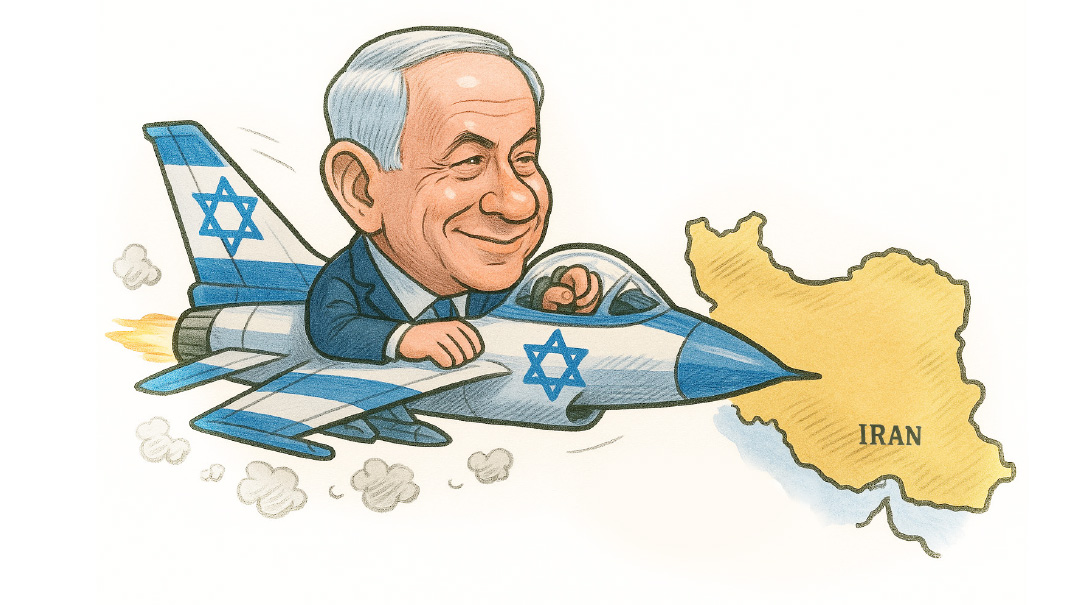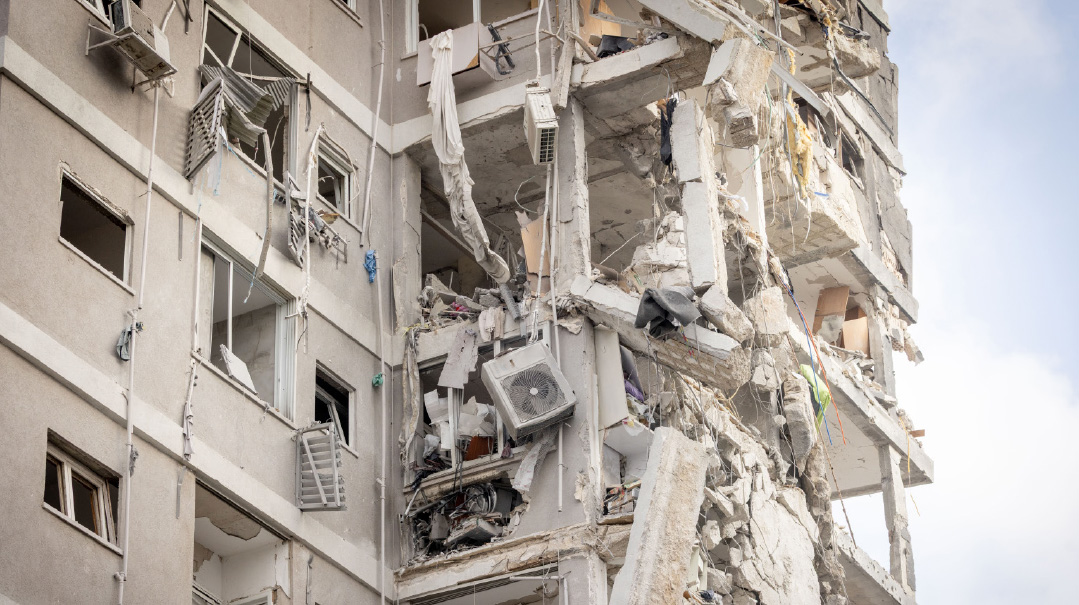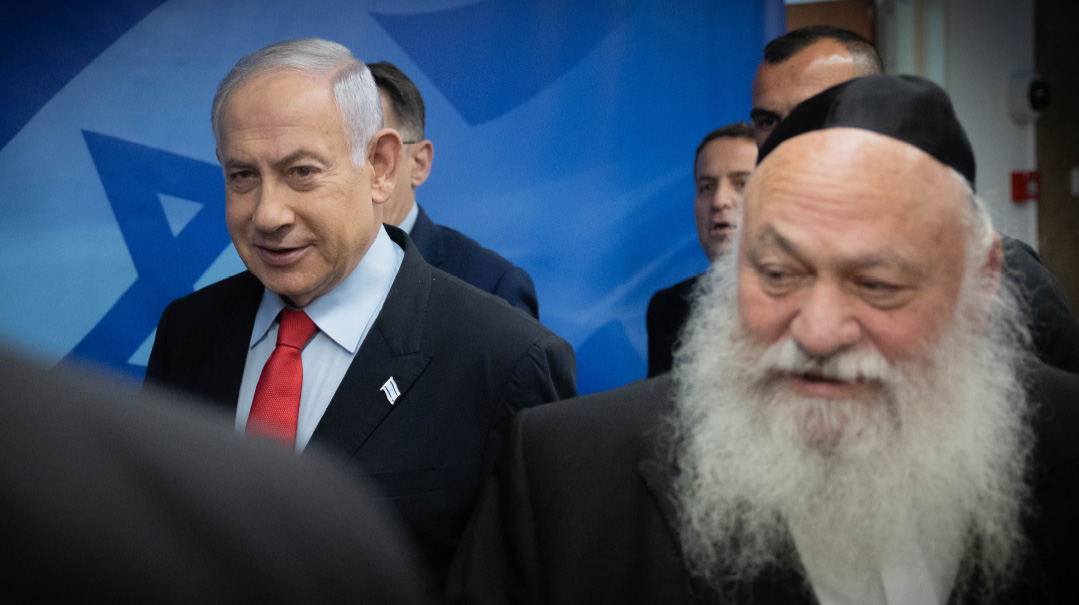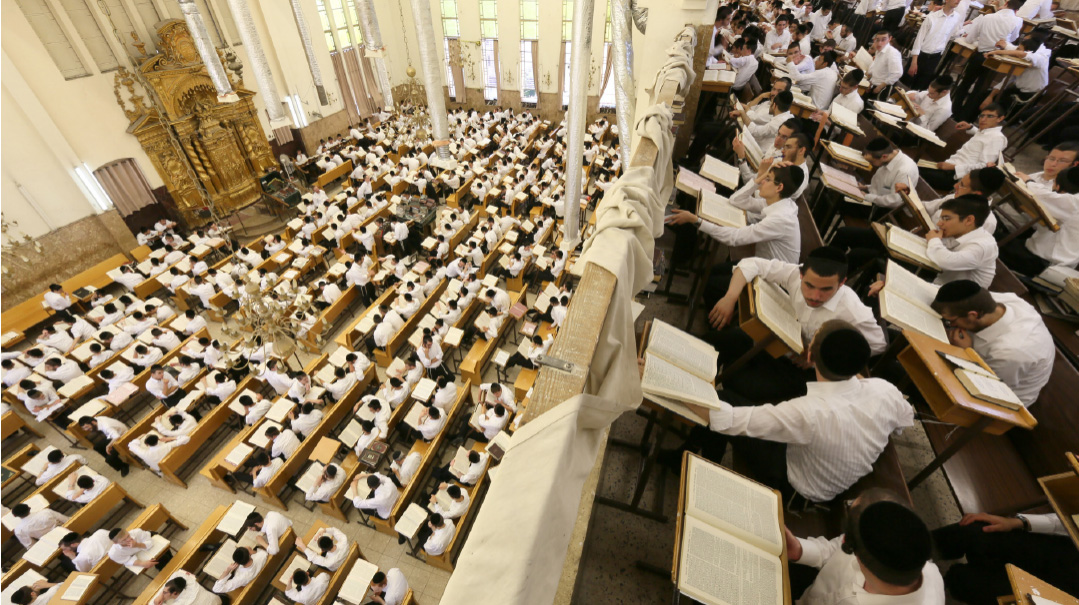Keeping the Faith

Faith in Israel’s political leadership is flagging. Emunah in our Father in Heaven, on the other hand, is holding up fine

I
srael called up some 380,000 reserve soldiers since October 7 to defend the country. Family men, parents who dropped everything on a moment’s notice and have been on the front lines ever since, whether in the fierce battles down south or in the relatively low intensity conflict up north.
Ever since the outbreak of the war, I’ve aimed to provide a glimpse of developments behind the scenes, in the Kiryah command bunker and behind the closed doors of the war cabinet. But there are moments when the right thing is to leave all that aside and offer readers abroad a taste of the mood on the ground among the troops fighting the worst evil the Jewish People has encountered since the 1930s. These days, the soldiers’ voices reflect the public mood far more accurately than the nattering of journalists do.
Uri is a friend, a brother and partner. A moshavnik with no connection to the chareidim, called up the day the war broke out as a commander in artillery battalion 9238. This week Uri picked up the phone and called me, with Hezbollah’s shells exploding in the background.
“We’ve stopped listening to the news because it doesn’t reflect our feelings on the ground,” he said. “Please make our voices heard to your readers, both in Israel and abroad. It’s important that Am Yisrael, whose hearts are going out to Israel, be able to filter what they hear in the media. There’s no hate among us, only love. Am Yisrael chai.”
You got it, Uri.
“We’ve been sitting for more than 30 days on the border with Hezbollah on the other side of the fence,” he said. “And we’re seeing amazing unity. We have Hatzalah volunteers serving beside us, chareidim who volunteered as combat medics on the northern frontier. Most of the IDF’s combat medics were sent south to the battles in Gaza, so they came and filled their place in the most dedicated and professional way possible.”
The troops strung out along the northern border are staying in evacuated border kibbutzim. In these kibbutzim, public prayer is usually only held on Yom Kippur, but over the past month, that has changed too.
“After a few weeks on the ground,” Uri recounted, “one of the chareidi medics asked me if there was a way to arrange a shower before Shabbos. I turned to my friends in the border kibbutz where we’re stationed, and they were happy to offer them the kibbutz’s Hashomer Hatza’ir youth group center. Since then, the chareidi guys have been using the center not only for showering before Shabbos but also for davening.”
That’s what called Tallit Barzel, iron tallis.
“There’s no fear, just a lot of heart and high morale,” Uri says. “Even in the north, we’re not sitting in an inferior defensive posture but rather an offensive posture. We all understand that at this point, our job is to defend the northern border to enable our guys down south to destroy Hamas. We’ve had the better of almost every exchange of fire with Hezbollah. After 30 days of fighting, they’re the ones licking their wounds. Please, pass on the message that we feel the amazing support from the home front and the entire Jewish world — and we all feel united. It’s important that people know this both in Israel and abroad.”
I
received a similar message from the Gaza Strip, this time from cousin Yirmi, an officer in the reconnaissance battalion of the Negev battalion — the brave reservists of the Givati Brigade. The Givati Brigade suffered heavy losses in the first week of the war, but its fighting spirit and sense of mission are unaffected.
“We just finished blowing up tunnels in the heart of Gaza,” says my cousin, who left behind a worried but supportive wife and four lonely but proud children. “We’re all working hard, with dedication and camaraderie. It’s important that you pass along the right message to the home front. We have high morale and a fierce sense of unity, we see help from Shamayim every step of the way, and baruch Hashem, we’re making good progress.”
The following anecdote demonstrates just how important the Jewish principle of ahavas Yisrael has been to the fighters: “Jerusalem chief rabbi Rav Shlomo Amar came to our battalion to bless us and give us strength, and it helped a lot,” Yirmi recounted. “Religious or not religious, no one here was unaffected.”
They say that there are no atheists in foxholes. A feeling of palpable Divine protection accompanies every soldier on the battlefield. Emunah and bitachon aren’t everyday subjects for a political column, but there are moments when one’s first responsibility is to faithfully portray the mood of the soldiers on the ground, especially if they specifically request you to pass it along. Faith in Israel’s political leadership is flagging. Emunah in our Father in Heaven, on the other hand, is holding up fine.
(Originally featured in Mishpacha, Issue 986)
Oops! We could not locate your form.







